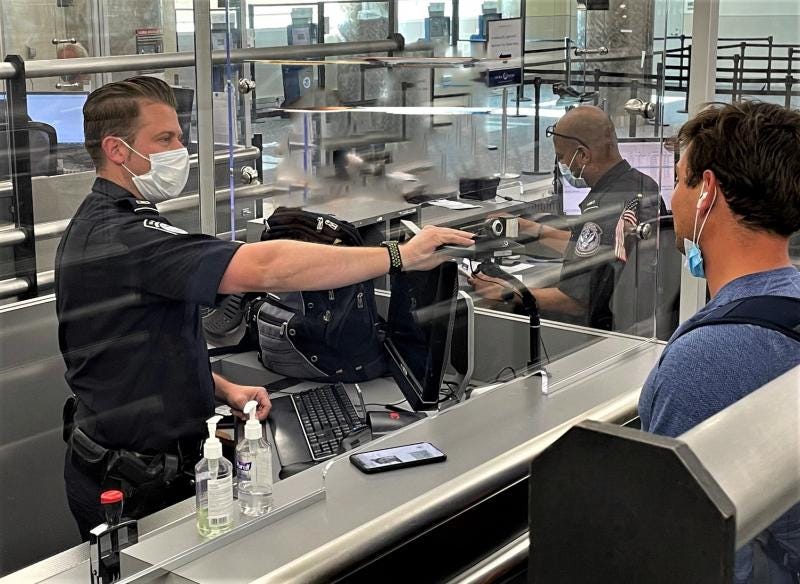What should I do if they ask to search my phone at border control?
A guide to dealing with the everyday civil liberties issue you're increasingly likely to encounter.

It’s been awhile since I’ve posted here! Between recent academic work and my journalism — you can still catch me at Reason Magazine — I’ve had way less time to blog frequently. Spending on serious, structured work is not a bad thing, of course, although I do miss going down niche rabbit holes for a small audience. Hopefully, you’ll see more of that soon.
Not today, though. This post is meant to draw your attention to some useful information on a topic of broad public interest.
As longtime readers will know, my only real experience with U.S. federal authorities was a brief, pointless interrogation by U.S. Customs and Border Protection (CBP) on the way back from Jordan. However, people I know have had much more unpleasant experiences with CBP. Such encounters are getting more frequent, and more intrusive. There were three high-profile cases over the past month involving CBP searching travelers’ phones: Rasha Alawieh, an unnamed French space scientist, and Amir Makled.
So what should you do if CBP asks to open your device? I wrote a guide at Reason Magazine, with the help of lawyers from the American Civil Liberties Union and the Electronic Frontier Foundation. I highly recommend reading it. Seriously, I am posting the link here four times so that you open it. Although the lawyers wanted me to emphasize that there is no one-size-fits-all approach, and so some of the advice may appear vague, I hope that the guide (fifth time!) gives you some underlying principles to inform your decisions.
The bottom line — and a common through-line in all my reporting — is that the U.S. government is highly constrained in what it can do to citizens but almost completely unrestricted in what it can do to foreigners. If you’re an American citizen, you cannot ever be stopped from reentering the country, and therefore have very wide latitude to refuse invasions of your privacy. If you’re a foreign visitor, CBP officers can put the burden on you to prove that they should let you enter.
And, of course, the best cure is prevention: Simply don’t have data on your devices that CBP can hassle you over. The Electronic Frontier Foundation has an excellent technical guide on how to practice information hygiene when crossing borders. This advice is useful in dealing with a range of different governments beyond U.S. border authorities, by the way.
As an Iranian-American friend of mine recently wrote: “I have always factory reset my phone before leaving America and once I was going to return, too many authoritarian third world regimes trying to snoop through my stuff (adding America to that list now)”


